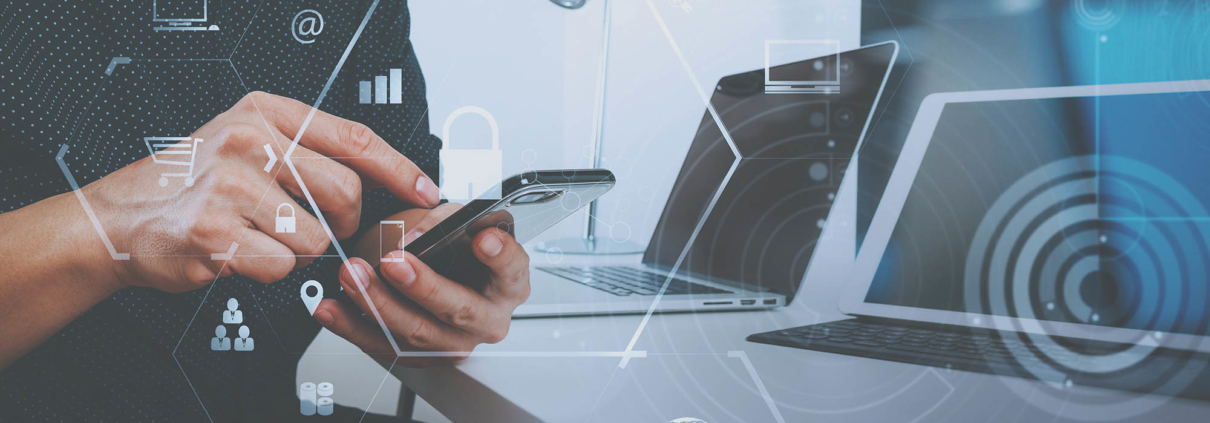Phishing and ransomware are major cybersecurity concerns, but they’re far from being the only factors threatening the security of your network. What’s worse is it seems new threats emerge on an almost yearly basis. In order to protect your business, it’s necessary to take steps to prepare your organization. One of the best ways to fight against cyberthreats is to stay aware of new cybersecurity trends.
2021 Cybersecurity Trends
Last year was quite a hectic year in terms of information technology. Along with a notable rise in cyberthreats, we had cybersecurity evolution in the form of new solutions, revelations, and regulations. Since the technology landscape is constantly shifting, what was trending then may not be the case now. So, how has the industry changed now that we’re in the year 2021?
Ransomware Is Back and More Troublesome Than Ever
It’s the problem that just won’t go away. Ransomware is one of the most common cybersecurity threats in the corporate world. Not only are these attacks increasing in frequency, but they’re also becoming more sophisticated and disruptive. Ransomware caused up to $20 billion in damages in 2020 and that number is only expected to go up in 2021.
Just this year, we had the most infamous ransomware attack against a U.S. corporation. Colonial Pipeline—the largest fuel pipeline in the country—suffered an attack in May that forced its pipelines to temporarily shut down. This is only one in a line of high-profile attacks we’ve seen so far. Some of the top IT organizations in the world—Cognizant, CompuCom, and DXC Technology—have been hobbled by ransomware as well.
There are a variety of ways a business can become infected with ransomware. However, hackers tend to favor phishing as their preferred method of attack. To guard against this type of threat, it’s a good idea to train your staff so they know how to spot phishing scams when they happen.
AI and Machine Learning for Security
The capabilities of artificial intelligence (AI) and machine learning make them valuable tools in business. These technologies are only going to improve as time goes on. While they can be used as virtual assistants or to automate processes, the best way to use them may be to integrate them into your security structure.
AI and machine learning is increasingly being used to create automated security systems that remove the human factor from the equation. This makes sense because of the solution’s ability to quickly analyze massive quantities of risk data. AI and machine learning have been used to do everything from discovering network vulnerabilities to detecting cyberattacks within seconds. Dependence on these systems is expected to increase in the foreseeable future.
If you want to strengthen your security measures, think about implementing an AI-powered security system. A solution like this has the potential to streamline your threat detection efforts.
Improved Cyber Awareness
It doesn’t matter if you’re a small startup or a mega corporation, every organization shares a common vulnerability—their employees. You could have the strongest security measures in the world. All it takes is a single mistake from one of your employees to bring disaster to your network.
Fortunately, there is something you can do to turn this weak link into a strength—invest in security awareness training (SAT). With a cybersecurity awareness program, you can train your team on how to identify and avoid threats. As cybersecurity becomes more of a central focus in the business world, we’re seeing a growing number of employers take this approach.
The Cloud Isn’t as Safe as It Used To Be
Cloud services offer a variety of benefits like increased flexibility, scalability, operational efficiency, and cost-effectiveness. In 2020, the cloud’s ability to allow employees to work from anywhere made it an essential tool as companies switched over to full remote work. Cloud adoption is only expected to grow in the years to come.
Of course, due to the uptick in popularity of the cloud, hackers are now increasingly targeting these services. In response to this situation, the current cloud security trend is to familiarize yourself with the vulnerabilities that come with integrating cloud services with your infrastructure. When you are aware of the security gaps of your solution, you can take steps to eliminate them.
Existing Cyberthreats Are Getting Stronger
It’s not just ransomware that’s getting worse. Phishing, trojans, botnets, and so on are also evolving and becoming more sophisticated. Not only that, but as we lean more towards automation, expect the volume of these threats to grow in frequency.
Many cybercriminals have already begun plotting their next move. Now that malware and social engineering campaigns are being industrialized, hackers can assess and fine-tune their strategies based on the results of a previous attack. As if they weren’t already a big enough pain in the neck, expect for these threats to become more difficult to deal with.
An Increased Need for Cybersecurity Professionals
Confiding in professionals who are well-trained and experienced in handling cyberthreats has always been an industry best practice. However, the growing complexity of cyberattacks has really highlighted the importance of having an expert by your side. It’s no longer viable to take chances with the protection of your IT.
While hiring an internal team to take care of your cybersecurity needs is a solution, it’s not always the right solution for every business. Hiring new staff can be too expensive for some small- to medium-sized businesses. If this is the case, there’s always the option to outsource with a managed service provider (MSP). An MSP is able to act as your cybersecurity solution for less than the cost of hiring one employee.
Do What It Takes To Protect Your Business
The Logic Group is a full-service IT and network services provider that is committed to the protection of your sensitive information. We offer a range of cybersecurity services—like dark web monitoring and 24/7 Security Operation Center—to meet the needs of your business.
Contact us today to learn more about our services and how we can keep your IT environment secure.




